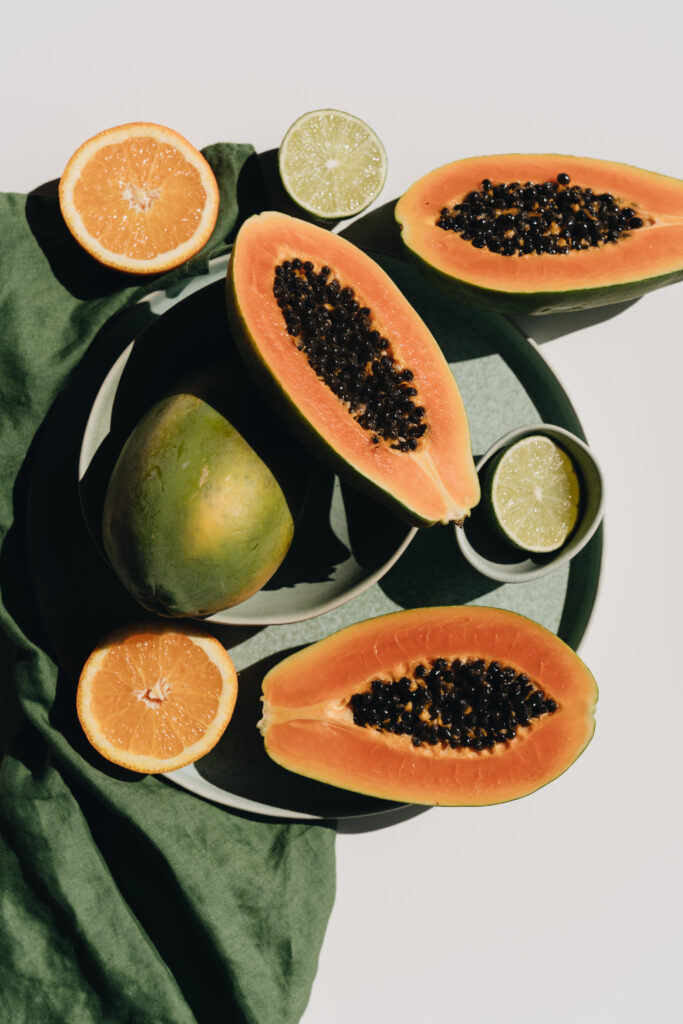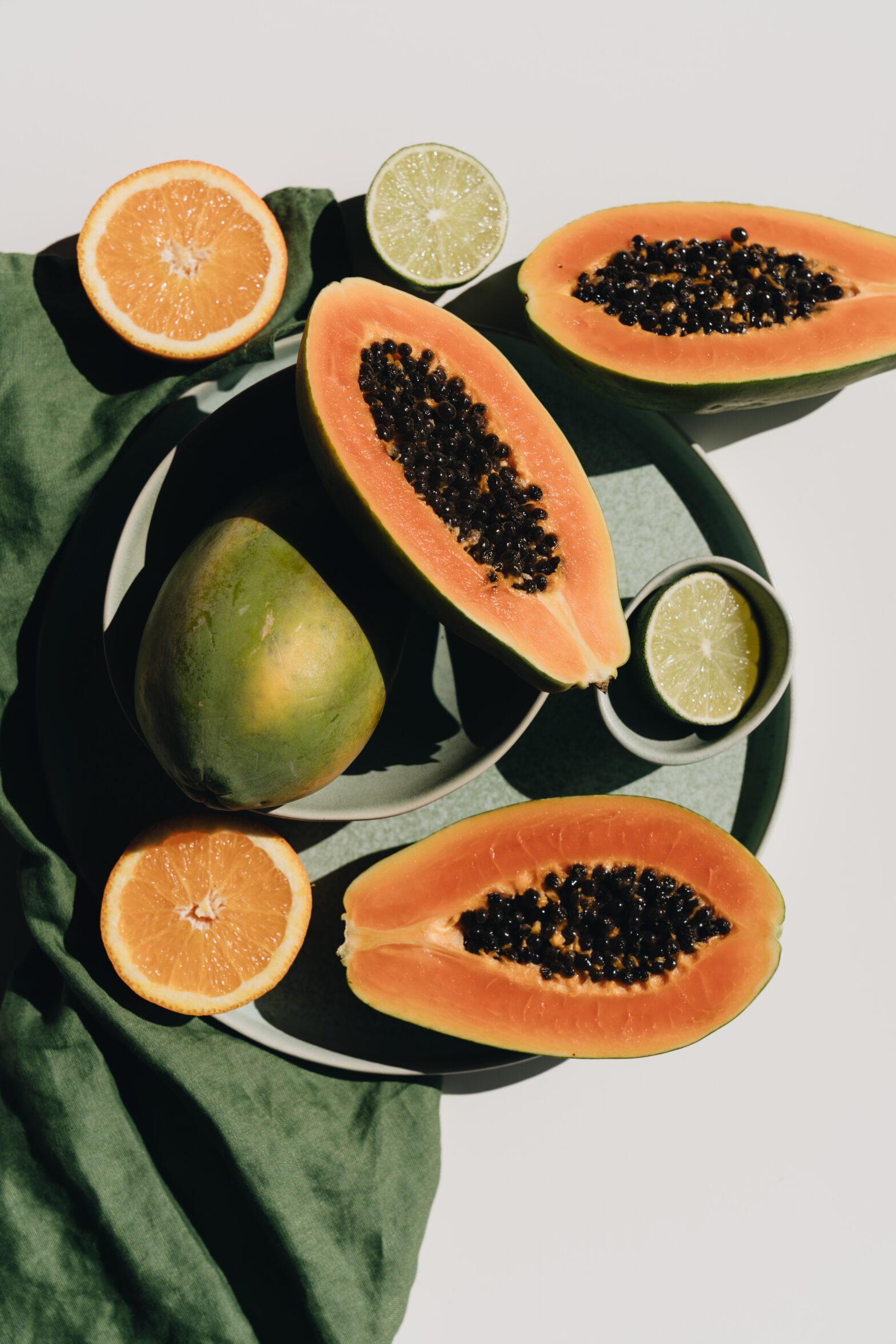Healthy eating and living habits play a significant role in reducing the risk of heart disease, which happens to be the leading cause of death in the United States. By incorporating certain foods into one’s diet, individuals can take proactive steps towards improving their heart health. For instance, including salmon and other fatty fish, which are rich in omega-3 fatty acids, can lower the risk of heart disease. Similarly, consuming oatmeal, which is high in soluble fiber, can help in reducing cholesterol levels. Berries, especially blueberries and strawberries, are also shown to have a positive impact on heart health. Dark chocolate with a high cocoa content, citrus fruits like oranges and grapefruits, potatoes, tomatoes, nuts such as almonds and walnuts, legumes like beans and lentils, extra-virgin olive oil, green tea, dark green vegetables like broccoli, spinach, and kale, moderate coffee consumption, flax and chia seeds, avocados, pomegranates, apples, tahini made from sesame seeds, garlic, and onions are some of the foods that have been linked to improved heart health due to their various beneficial properties.
Healthy eating and living habits can help lower the risk of heart disease.

Introduction
Heart disease is the leading cause of death in the United States, making it crucial for individuals to prioritize their heart health. While genetics and other factors play a role in the development of heart disease, adopting healthy eating and living habits can significantly lower the risk. This article will explore the key statistics about heart disease, provide an understanding of the condition, and highlight the important role that diet and lifestyle choices play in preventing heart disease.
Key statistics about heart disease
According to the Centers for Disease Control and Prevention (CDC), heart disease accounts for about 1 in every 4 deaths in the United States. Approximately 655,000 Americans die from heart disease each year. These statistics highlight the urgent need to address this preventable condition through lifestyle modifications, including healthy eating habits.
Understanding heart disease
Heart disease refers to a range of conditions that affect the heart and blood vessels. The most common type is coronary artery disease (CAD), which occurs when the arteries that supply blood to the heart become narrowed or blocked. This can lead to chest pain, heart attacks, and other serious complications. Other types of heart disease include heart failure, arrhythmias, and heart valve problems.
The role of diet in preventing heart disease
Numerous studies have shown a strong link between diet and heart health. A healthy diet can help control weight, blood pressure, cholesterol levels, and blood sugar levels- all of which are risk factors for heart disease. By adopting a balanced and nutritious diet, individuals can significantly reduce their risk of developing heart disease.

The importance of healthy eating habits
Healthy eating habits play a crucial role in preventing heart disease. It is important to consume a variety of nutrient-dense foods that are low in saturated and trans fats, cholesterol, added sugars, and sodium. Instead, individuals should focus on including foods that are rich in fiber, antioxidants, vitamins, and minerals. By making healthy food choices, individuals can nourish their bodies and promote optimal heart health.
The impact of lifestyle choices on heart health
In addition to diet, lifestyle choices such as physical activity, maintaining a healthy weight, managing stress, and avoiding tobacco and excessive alcohol consumption, play a significant role in reducing the risk of heart disease. Engaging in regular exercise, practicing stress reduction techniques, and avoiding smoking and excessive drinking are all vital components of a heart-healthy lifestyle.

Specific foods that lower the risk of heart disease
1. Salmon and other fatty fish
Salmon and other fatty fish are rich in omega-3 fatty acids, which have been shown to lower the risk of heart disease. Omega-3 fatty acids help reduce inflammation, lower triglyceride levels, and decrease the risk of arrhythmias. Consuming fatty fish at least twice a week can provide these heart-healthy benefits.
2. Oatmeal
Oatmeal is high in soluble fiber, which can help lower cholesterol levels. Soluble fiber forms a gel-like substance in the digestive system, which binds to cholesterol and removes it from the body. Incorporating a serving of oatmeal into the diet can contribute to better heart health.
3. Berries
Berries, especially blueberries and strawberries, are rich in antioxidants and phytochemicals that may lower the risk of heart disease. These compounds help reduce inflammation and oxidative stress, two factors that contribute to the development of heart disease. Adding a handful of berries to the diet daily can provide these heart-protective benefits.
4. Dark chocolate
Dark chocolate, particularly those with a high cocoa content (70% or more), may benefit heart health. Cocoa is rich in flavanols, which have been shown to improve blood flow, lower blood pressure, and reduce the risk of blood clots. However, it is important to consume dark chocolate in moderation, as it is still high in calories.
5. Citrus fruits
Citrus fruits, like oranges and grapefruits, contain flavonoids that can lower the risk of stroke and heart disease. Flavonoids have antioxidant and anti-inflammatory properties, which help protect the heart and blood vessels. Including a variety of citrus fruits in the diet can provide these heart-protective benefits.
6. Potatoes and tomatoes
Potatoes and tomatoes are high in potassium and other heart-healthy nutrients. Potassium helps regulate blood pressure and reduce the risk of stroke. Tomatoes contain lycopene, which has been associated with a reduced risk of heart disease. Incorporating potatoes and tomatoes into meals can contribute to a heart-healthy diet.
7. Nuts
Nuts, including almonds and walnuts, contain good-for-your-heart fiber and vitamin E. They are also rich in unsaturated fats, which can help lower LDL cholesterol levels. Consuming a handful of nuts as a snack or adding them to salads and other dishes can provide these heart-protective benefits.
8. Legumes
Legumes, such as beans and lentils, are a great source of protein without unhealthy fats. They are also high in fiber and contain essential minerals like potassium and magnesium. Consuming legumes regularly can help lower cholesterol levels and promote heart health.
9. Extra-virgin olive oil
Extra-virgin olive oil is high in monounsaturated fat, which can lower cholesterol levels. It is also rich in antioxidants, which help reduce inflammation and oxidative stress. Using olive oil as a primary cooking oil and for salad dressings can contribute to a heart-healthy diet.
10. Green tea
Green tea contains polyphenols that can reduce the risk of cardiovascular disease and stroke. These compounds help improve blood flow, lower blood pressure, and reduce cholesterol levels. Consuming green tea regularly, either hot or iced, can provide these heart-protective benefits.
11. Dark green vegetables
Dark green vegetables, like broccoli, spinach, and kale, are high in antioxidants and fiber. They also contain vitamins and minerals that support heart health, such as vitamin K, magnesium, and potassium. Including dark green vegetables in meals and snacks can significantly contribute to a heart-healthy diet.
12. Moderate coffee consumption
Moderate coffee consumption has been linked to a reduced risk of heart disease. The antioxidants and polyphenols present in coffee can provide protective effects for the heart. However, it is important to note that excessive consumption of caffeine can have negative effects on heart health, so moderation is key.
13. Flax and chia seeds
Flax and chia seeds are high in plant-based omega-3 fatty acids and fiber. Omega-3 fatty acids help reduce inflammation and improve heart health, while fiber aids in cholesterol management. Adding a tablespoon of flax or chia seeds to smoothies, yogurt, or oatmeal can provide these heart-protective benefits.
14. Avocados
Avocados are rich in healthy fats and can lower heart disease risk factors. They are also high in fiber, potassium, and antioxidants. Incorporating avocados into meals or using them as a replacement for unhealthy fats, such as butter or mayo, can contribute to a heart-healthy diet.
15. Pomegranates
Pomegranates have antioxidant properties that can prevent coronary heart disease. They help reduce inflammation, lower blood pressure, and improve overall heart health. Consuming pomegranate seeds or drinking pomegranate juice can provide these heart-protective benefits.
16. Apples
Apples are known to reduce total cholesterol and protect the heart due to their prebiotic content. Prebiotics promote the growth of beneficial gut bacteria, which are linked to a lower risk of heart disease. Including apples as a snack or in recipes can support heart health.
17. Tahini
Tahini, made from sesame seeds, provides plant protein, fiber, and key nutrients that can improve heart health. It is also a good source of monounsaturated fats, which can help lower cholesterol levels. Using tahini as a spread or in salad dressings can contribute to a heart-healthy diet.
18. Garlic and onions
Garlic and onions have been shown to have anti-inflammatory effects and improve blood flow and circulation. They also contain sulfur compounds that help lower blood pressure and cholesterol levels. Adding garlic and onions to a variety of dishes can provide these heart-protective benefits.
Conclusion
When it comes to heart health, adopting healthy eating and living habits is crucial. By understanding heart disease, making mindful food choices, and incorporating specific heart-healthy foods into the diet, individuals can significantly lower their risk of developing heart disease. Additionally, practicing a heart-healthy lifestyle, including regular physical activity, maintaining a healthy weight, managing stress, and avoiding tobacco and excessive alcohol consumption, can further support heart health. Prioritizing these habits can lead to a lifetime of optimal heart health and well-being.
